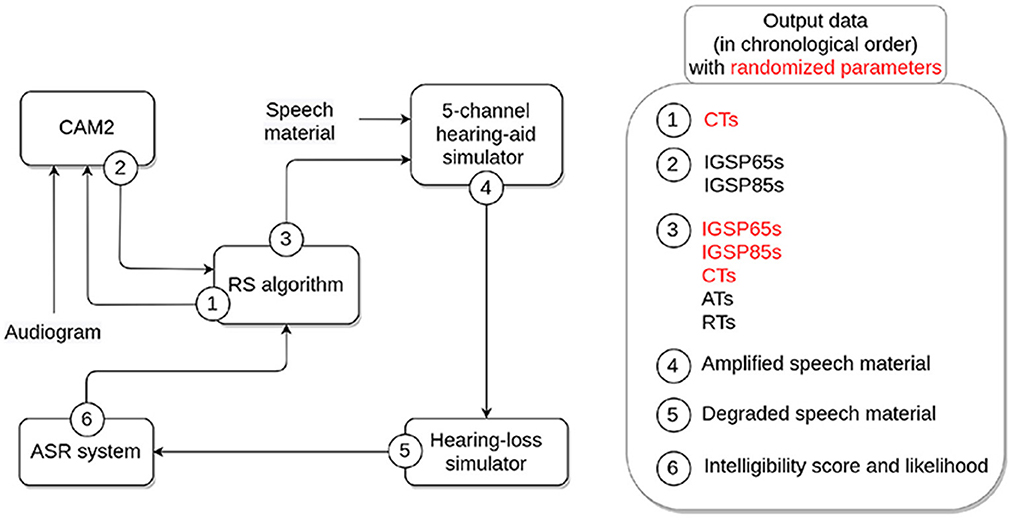
94% of researchers rate our articles as excellent or good
Learn more about the work of our research integrity team to safeguard the quality of each article we publish.
Find out more
ERRATUM article
Front. Neurosci. , 09 December 2022
Sec. Auditory Cognitive Neuroscience
Volume 16 - 2022 | https://doi.org/10.3389/fnins.2022.1095750
This article is an erratum on:
OPRA-RS: A Hearing-Aid Fitting Method Based on Automatic Speech Recognition and Random Search
An Erratum on
OPRA-RS: A hearing-aid fitting method based on automatic speech recognition and random search
by Gonçalves Braz, L., Fontan, L., Pinquier, J., Stone, M. A., and Füllgrabe, C. (2022). Front. Neurosci. 16:779048. doi: 10.3389/fnins.2022.779048
Due to a production error, Figure 1 was wrong in the PDF. Correct Figure 1 appears below.

Figure 1. Overview of the components of the OPRA-RS processing chain and associated output data. HA parameters randomized by the RS algorithm appear in red.
The publisher apologizes for this mistake. The original article has been updated.
Keywords: random search (RS), automatic speech recognition (ASR), hearing aids (HAs), prescription rule, age-related hearing loss (ARHL), insertion gains, compression thresholds
Citation: Frontiers Production Office (2022) Erratum: OPRA-RS: A hearing-aid fitting method based on automatic speech recognition and random search. Front. Neurosci. 16:1095750. doi: 10.3389/fnins.2022.1095750
Received: 11 November 2022; Accepted: 11 November 2022;
Published: 09 December 2022.
Approved by:
Frontiers Editorial Office, Frontiers Media SA, SwitzerlandCopyright © 2022 Frontiers Production Office. This is an open-access article distributed under the terms of the Creative Commons Attribution License (CC BY). The use, distribution or reproduction in other forums is permitted, provided the original author(s) and the copyright owner(s) are credited and that the original publication in this journal is cited, in accordance with accepted academic practice. No use, distribution or reproduction is permitted which does not comply with these terms.
*Correspondence: Frontiers Production Office, cHJvZHVjdGlvbi5vZmZpY2VAZnJvbnRpZXJzaW4ub3Jn
Disclaimer: All claims expressed in this article are solely those of the authors and do not necessarily represent those of their affiliated organizations, or those of the publisher, the editors and the reviewers. Any product that may be evaluated in this article or claim that may be made by its manufacturer is not guaranteed or endorsed by the publisher.
Research integrity at Frontiers

Learn more about the work of our research integrity team to safeguard the quality of each article we publish.